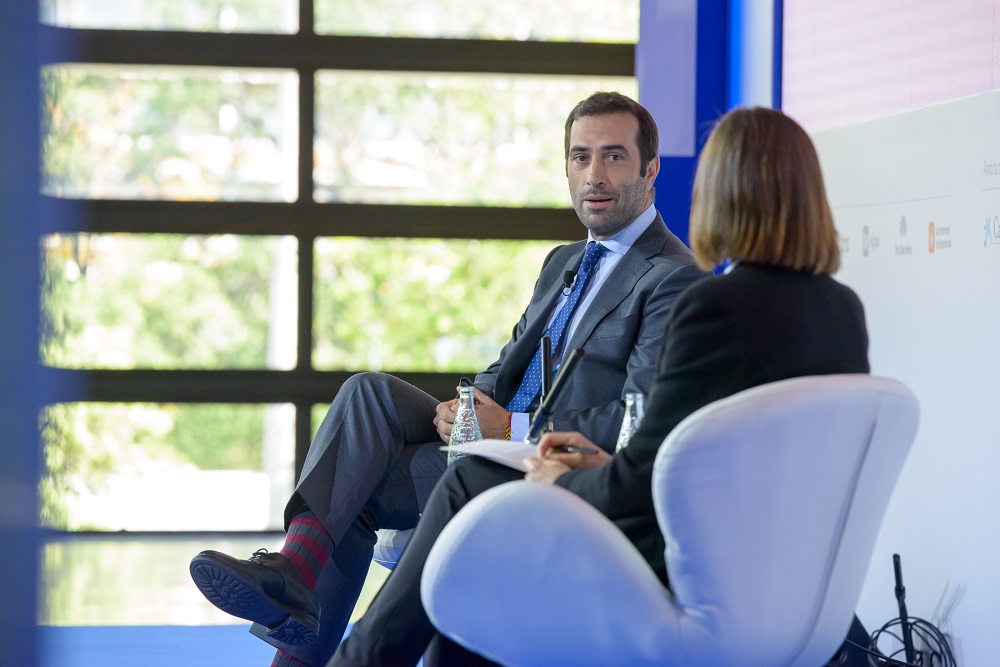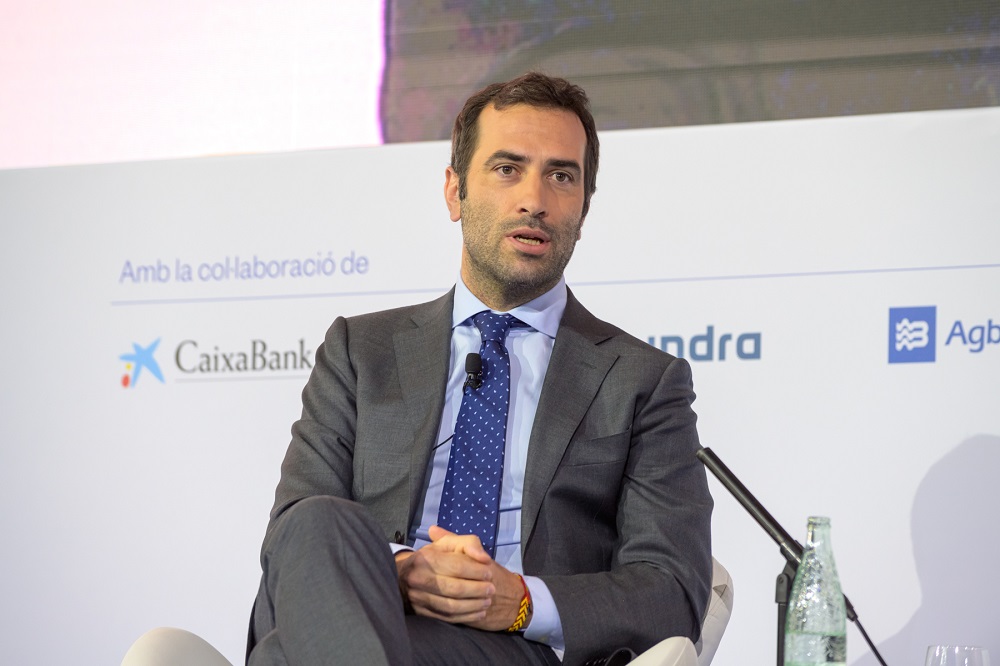Teresa García-Milà (vice president of Cercle d'Economia) focused the session on the most notorious and current issues related to the Spanish economic situation, in the present and also in its future evolution.
In response to the Cercle vice-president's approach to Spain's "difficulties" in terms of productivity, the Minister of Economy, Trade and Business, Carlos Cuerpo, argued: "If the country's productive activity had remained with the same weight as the sectors had in 2018, productivity would have increased by only a third of what it has actually done". He attributed it the recovery to the "modernisation" of the economy thanks to "investments in sectors with greater added value" within the framework of the recovery plan.
Cuerpo offered a trail of positive variables and equally optimistic assessments: "excellent growth" of 2.5% in 2023 (almost six times the Eurozone average) and a positive evolution, of 0.7%, in the first quarter of 2024 (more than double that of the Eurozone); 260,000 new Social Security affiliations in the first four months of 2024; an increase in GDP by 2024 that national and international economic organizations place above 2% and, in some cases, "above the government's own estimates"; a forecast of a deficit over GDP of 3% at the end of 2024 (coinciding with those of the European Commission and AIReF); and a "progressive moderation of prices" with effects on the purchasing power of households.

After the health pandemic and the energy crisis, fiscal rigor returns
Taking the minister's reference to the deficit, Teresa García-Milà put on the table the obligation of Spain (and each Member State) to present a structural fiscal plan before September 2024. How will the Spanish economy – "which needs structural reforms in taxation and spending" – address the new horizon of budgetary rigor? Here Carlos Cuerpo responded that "the new fiscal rules are made looking forward, especially being aware that we have to be able, now, to reduce the deficit, but that this is compatible with growth, with investment." He used terminology associated with monetary policy to define the new horizon: "It will be a soft landing in terms of fiscal policy."
García-Milà also emphasised the "imbalance" between the growing responsibility of the autonomous communities in terms of spending and the distribution of resources by the Spanish government to the regions, something he defined as a "lack of vertical equity". Here the minister stated that "we are fully aware of the responsibility that, in spending on health and education, the autonomous communities assume", but stressed that, despite the extension of the budgets, in 2024 the payments on account to the autonomous communities will increase by 15%.
European funds: recovery from the pandemic and modernisation
They agreed on the "enormous opportunity for the country" represented by the Recovery, Transformation and Resilience Plan (80,000 million euros in transfers and 80,000 million more in credits from the European Commission at the disposal of Spain). With the initial objective of helping the post-pandemic recovery and an associated "second dividend", in the words of the minister, in the form of a "contribution to the modernisation" of the economy.
With the European programme scheduled for completion in 2026, Cuerpo advocated for more private sector participation – with a direct reference to the proposal by Enrico Letta, president of the Delors Institute, to advance a capital markets union project that facilitates the mobilisation of European citizens' savings and that is used to finance investments or productive projects within the EU- accompanied by more public investment in each of the countries (in priority areas such as sustainability or digitalisation) and the "joint issuance of debt and genuinely European financing".

Wages, working hours, competitiveness, pensions and bureaucracy
Despite the country's competitiveness and productivity, García-Milà pondered "whether the time had not come to improve the work environment taking into account not only the protection of workers, in which we have made a lot of progress, but also business needs and economic efficiency". The minister highlighted that "in the last two years the recovery of wages is being compatible with the recovery of margins by companies in most sectors".
Regarding the working day, he agreed with the vice president of Cercle d'Economia on the trend of "progressive reduction" of it. A "fairly widespread process in Spain, but at the same time in most advanced countries" which, the minister defended, "we must ensure that it is compatible with the business objective of improving productivity", but also with the "very legitimate" objective on the part of all workers to achieve a "better compatibility" of working hours and private life. This involves "finding the optimal degree of flexibility," he said. In the labour market, he highlighted the "reduction of temporary employment", that is, the achievement of "more stability" that accompanies the "robust" creation of jobs. And in pensions, he said that the reform of the system contains a closing clause that "ensures" its sustainability.
García-Milà referred to the administrative bureaucracy: "An administration that is not very agile and highly regulated, especially thinking about the environment where companies operate, but also in terms of their creation and growth". For the minister, one of the Ministry's priorities is "to help SMEs navigate the excess regulatory burden or bureaucratic complexity". He admitted that "we have to simplify the administrative scheme we have" through regulatory modifications and indicated that "we are working on taking advantage of the opportunities of digitalization and Artificial Intelligence."
In competitiveness via exports, Carlos Cuerpo admitted that tourism continues to be an "important component." He positively valued the "very strong" growth in "non-tourism services", as well as the "differential element" of services related to "telecommunications and finance". And he explained the "entry of foreign direct investment in sectors with high added value" which, in his opinion, over time will translate into "more exports in industrial products".